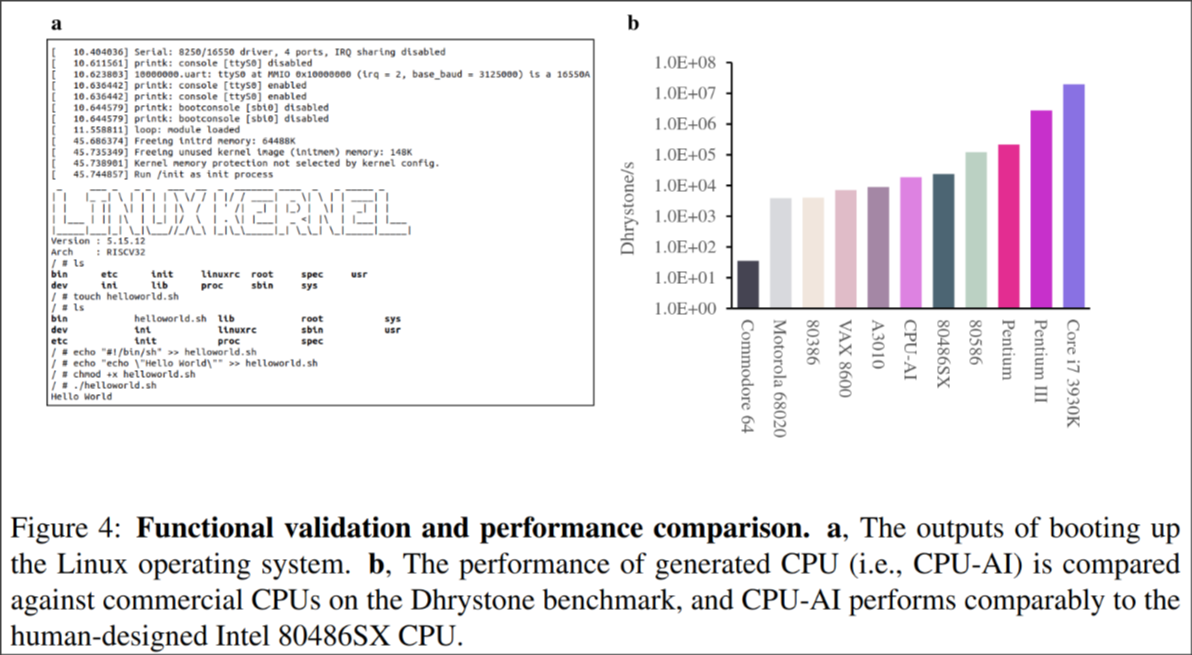
From the same country that reported their fist x86 processor that was an Intel Core i3 in disguise. Or was a Pentium?
In addition, the generated Boolean function is almost zero tolerance to inaccuracy, otherwise, CPUs will be malfunctioned and cause a huge amount of loss. A recent case in 2017 is that the Intel Atom C2000 bug affected many famous vendors, among which Cisco prepared 125M dollars to replace related products32. […] In this article, we report a RISC-V CPU automatically designed by a new AI approach, which generates large-scale Boolean function with almost 100% validation accuracy (e.g., > 99.99999999999% as Intel)
Oh good, that was going to be my question. A new CPU is all well and good, but if you don’t validate it to prove it doesn’t have some weird bug, then it’s worthless.
Let me know when they put the heat sink on a production model so we can REALLY test that bad boy.



